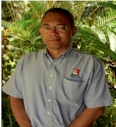 Scientists from around the Pacific have joined 22 member countries and territories of the SOPAC Division of the Secretariat of the South Pacific (SPC) in a six-day meeting being held in Nadi from October 17-22.
Scientists from around the Pacific have joined 22 member countries and territories of the SOPAC Division of the Secretariat of the South Pacific (SPC) in a six-day meeting being held in Nadi from October 17-22.
This is SOPAC’s first meeting as a Division since it became a part of SPC in January of this year.
“This is an opportunity to review the progress and directions of the SOPAC Division Work Programme, and to stimulate and plan new, emerging initiatives needed in the region,” said Dr. Russell Howorth, SOPAC’s Director.
In addition to the member countries, advisors from supporting governments, organisations and institutions are attending.
SOPAC’s Science Technology and Resources Network (STAR) is an integral part of the meeting with three days of presentations that examine regional concerns such as earthquakes, tsunamis, flooding, climate change, and seabed minerals.
The overall theme of the conference is “Adapting to Climate and Environmental Change in the Pacific Islands.” Professor John Cullen, of the School of Geography, Environment and Earth Sciences from Victoria University is chairing the STAR presentation days.
Among those from the Pacific Islands making presentations are Esline Garaebiti, Manager Vanuatu’s Meteorology and Geohazards Department; Litia Biukoto, Advisor - Hazards Assessment Programme, SOPAC; Paul Taumoepeau, Tonga Nautilius Country Manager; Edwin Liava’a, Database GIS Specialist, Pacific Hycos, SOPAC.
CAPTION - Paul Taumoepeau, Tonga Nautilius Country Manager;





